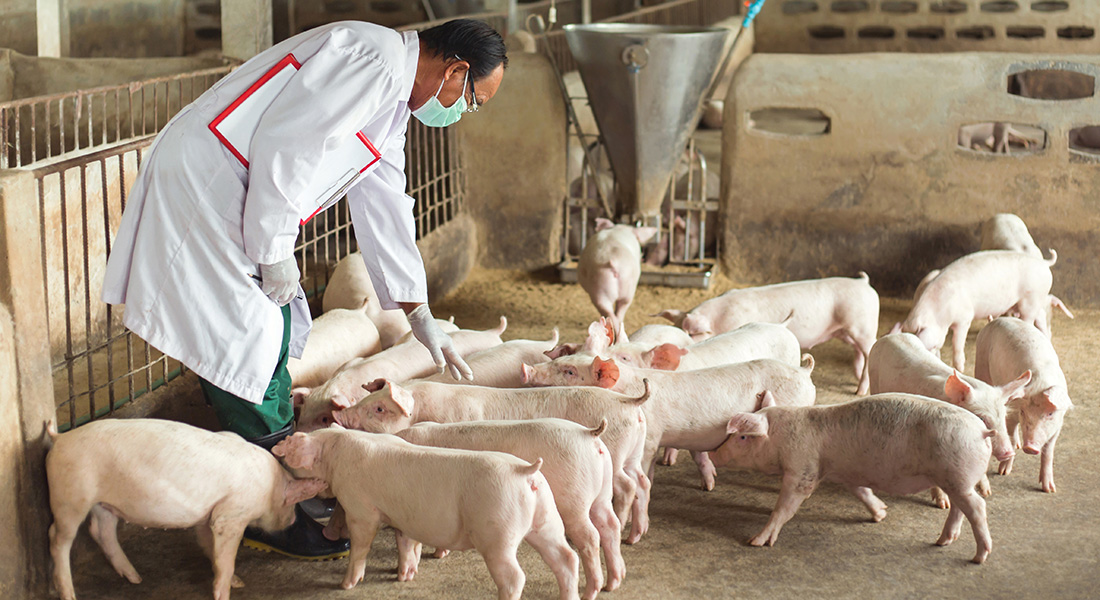Researchers mobilise to combat antimicrobial resistance
Associate Professor Mani Arumugam is responsible for leading data integration in the international PIG-PARADIGM research project to reduce the need for antibiotic use in pigs. The project has received DKK 150M in funding from the Novo Nordisk Foundation.

Antibiotics are used to treat or prevent some types of bacterial infection, for example in the airways or digestive tract of humans and pigs. However, the current overuse of antibiotics leads to bacteria developing resistance and thus creating a lack of antibiotic efficacy and, worst case, a complete lack of therapeutic options to treat bacterial infections. Currently, more than 700,000 people die each year from infections that are resistant to most, or all antibiotics, and the number is increasing. New approaches to prevent common infections in agriculture can help reduce the need for antibiotics and reduce the spread of antibiotic resistance.
Researchers from universities in Denmark, the United States and the Netherlands are therefore joining forces in a new project, PIG-PARADIGM, collecting data on how to improve intestinal resilience in developing piglets, with the aim of advancing knowledge on how to prevent bacterial infections and reducing the need for antimicrobial use. The Novo Nordisk Foundation is funding the project with DKK 150 million.
“Antimicrobial resistance is one of the greatest global threats to our health. By supporting the project, the Novo Nordisk Foundation wants to contribute to generating new knowledge that can help to reduce the use of antibiotics in the pig farming industry and thereby counteract the development of resistant bacteria,” says Mads Krogsgaard Thomsen, CEO, Novo Nordisk Foundation.
Mani Arumugam leads the data integration
The research project has great potential for global health, and if the researchers behind PIG-PARADIGM succeed in determining how to reduce the need for antibiotics in pig production, they can help to overcome one of the greatest health threats of our era.
Associate Professor Mani Arumugam from the Novo Nordisk Foundation Center for Basic Metabolic Research (CBMR) at the University of Copenhagen, is responsible for leading the data integration. He says:
"Many factors affect a pig’s risk of developing infections, from their microbiome and genetics to their diet and environment. So it is vital that we take a holistic approach to understand how these factors influence that risk in order to develop guidelines that can help reduce antibiotic use. Data scientists with a background in biology, who can integrate and analyse the different data, will therefore play a crucial role in this project.”
Contact
Facts about PIG-PARADIGM
- The project is called Preventing Infection in the Gut of developing Piglets – and thus Antimicrobial Resistance – by disentAngling the interface of DIet, the host and the Gastrointestinal Microbiome (PIG-PARADIGM).
- The duration of the project is five years: from 2022 to 2027.
- The Novo Nordisk Foundation is enabling the research with a grant of DKK 150 million.
- The five key collaborators in the project are Aarhus University, the University of Copenhagen, Aalborg University, the University of California, Davis in the United States and Wageningen University & Research in the Netherlands.
Further information:
Christian Mostrup, Head of Press, Novo Nordisk Foundation, +45 30674805, cims@novo.dk

